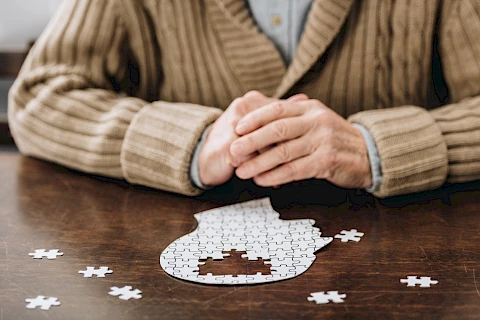
Alzheimer's disease is a complex neurological disorder that affects millions of people worldwide. An understanding of its history offers insights into the nature of the disease and illuminates the progress that healthcare and science have made over time. With a strong understanding of this disease and history's progression toward understanding it, caregivers can better understand the needs of their loved ones.
The Early Discoveries of Alzheimer's Disease
In 1901, Dr. Alois Alzheimer, a German psychiatrist, and neurologist, recorded the first known case of this perplexing disease. It was a unique situation involving a woman in her 50s who presented symptoms we now associate with Alzheimer's. This included memory loss, unusual behavior, and difficulty with language.
After her death, Dr. Alzheimer examined her brain and noted structural changes, including tangled fibers and abnormal clumps, which we now know as neurofibrillary tangles and amyloid plaques. The disease was named in his honor in 1910. However, it was still widely misunderstood and often misconstrued as a normal part of aging.
Advancements in Alzheimer's Research
The late 20th century heralded a new era of research and understanding into Alzheimer's disease. The amyloid hypothesis developed in the 1980s proposed that amyloid plaques were a potential cause of the disease. This marked a significant shift in the scientific community's understanding. In the 1990s, researchers discovered genetic links to Alzheimer's, particularly mutations in certain genes that appeared to increase one's risk of developing the disease.
Advances in neuroimaging techniques and clinical trials of potential drug therapies give us tools to understand and treat Alzheimer's effectively. The field has inevitably encountered setbacks, but each failure provides valuable information that guides future investigations.
Changes in Public Perception of Alzheimer's Disease
Over the 20th century, public perception of Alzheimer's has gradually shifted from stigma and misunderstanding to acknowledgment and awareness. High-profile cases of Alzheimer's have played a significant role in this transition. This has driven a surge of attention to the disease and pushed it into the public consciousness.
Notably, the diagnosis of former U.S. President Ronald Reagan in 1994 helped to break down the wall of silence surrounding the disease. Since then, Alzheimer's has been increasingly recognized as a significant public health issue. This has led to more extensive research funding and major efforts to improve care and support for those affected.
The Importance of Continued Education and Awareness
Education and awareness are the cornerstones of effective Alzheimer's care. As our understanding of the disease evolves, so too must our strategies for early detection, treatment, and support. Increased public understanding of Alzheimer's can help to reduce stigma, improve the quality of care for those affected, and highlight the urgent need for more research.
Organizations like Senior Helpers Greater Philadelphia provide support services for individuals affected by Alzheimer's and their families. We also work tirelessly to promote awareness and understanding of the disease within the communities we serve.
Explore Comprehensive Alzheimer's Disease Care
The history of Alzheimer's disease is a testament to the fascinating journey of human understanding. From the early discoveries of Dr. Alzheimer to modern research, we've come a long way in our comprehension of this complex disease. There is still much to learn, but with continued research, education, and awareness, we can improve the lives of those affected by Alzheimer's.
If you or a loved one is living with Alzheimer's in Philadelphia, Elkins Park, Cheltenham, or Wynnewood, we urge you to seek the support you need. At Senior Helpers Greater Philadelphia, we offer Alzheimer's and Dementia Care services that improve the quality of life for seniors and their families. Contact us today to learn more.